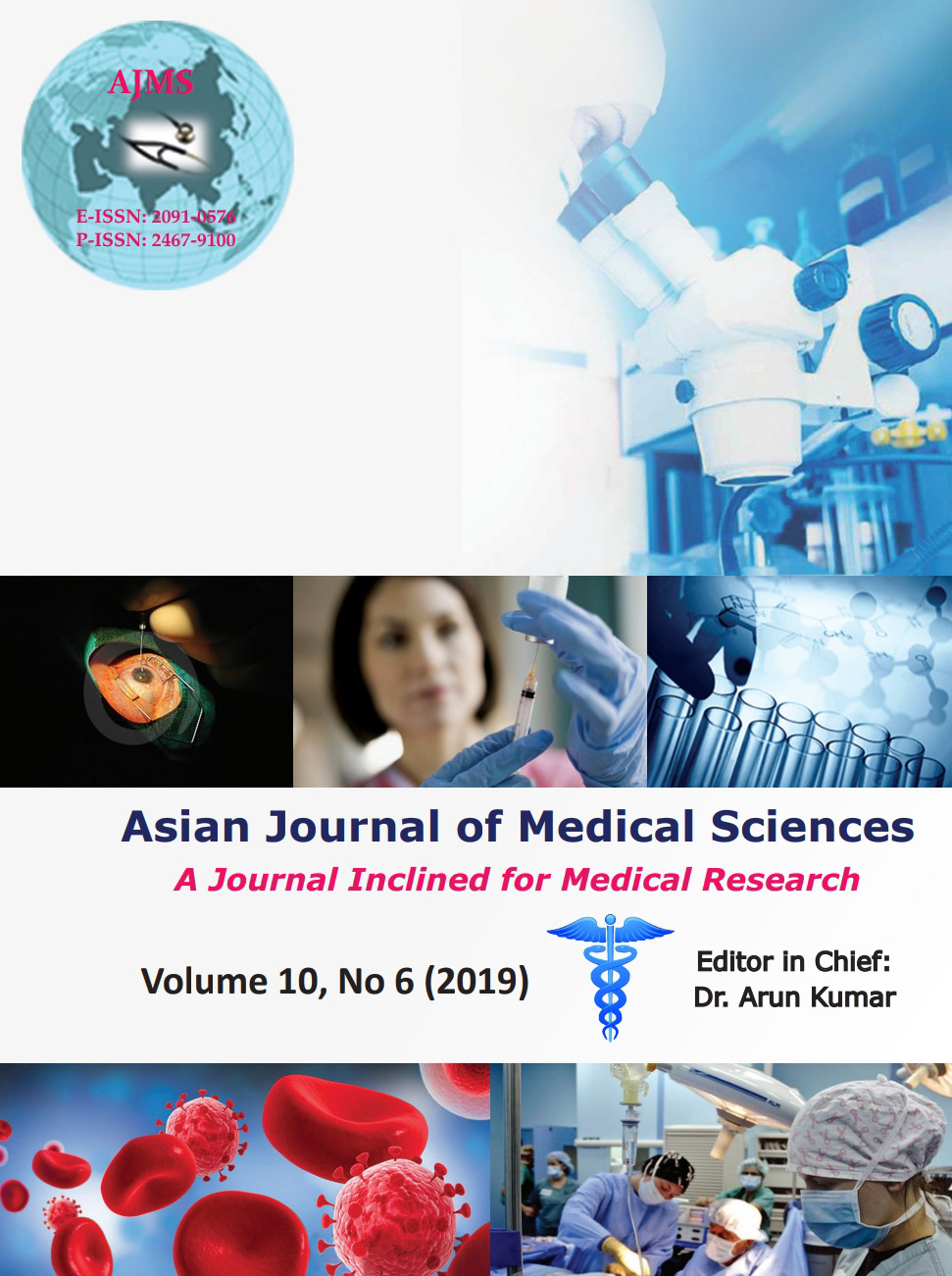The distribution of hepatitis C virus genotypes in patients with hepatocellular carcinoma
Keywords:
HCV, HCV genotype, Hepatocellular carcinomaAbstract
Background: Hepatic cirrhosis develops within 20-30 years in approximately 20% of individuals chronically infected with hepatitis C virus (HCV).
Aims and Objective: This study aimed to determine the distribution of HCV genotypes in patients with HCV-associated HCC in our region and thus to contribute to the epidemiology of HCV.
Materials and Methods: HCC patients referred to the virology laboratory for HCV genotype identification between January 2013 and April 2018 were included in this study. Genotyping of HCV was performed by a commercial reverse hybridization line probe-based assay.
Results: Seventeen patients who were diagnosed with HCC and whose HCV genotypes were analyzed were included in this study. Genotype 1 was detected in all 17 patients with HCC. When evaluating subtypes of genotype 1, genotype 1b was detected in 16 (94%) of the patients. The HCV subtyping in one patient (6%) could not be performed.
Conclusion: As a result, genotype 1b, one of the major risk factors for HCC, was detected in 94% of the patients included in this study. This study, consistent with the literature, shows a high association between the development of HCC and genotype 1b in patients with chronic HCV.
Downloads
Downloads
Published
How to Cite
Issue
Section
License
Authors who publish with this journal agree to the following terms:
- The journal holds copyright and publishes the work under a Creative Commons CC-BY-NC license that permits use, distribution and reprduction in any medium, provided the original work is properly cited and is not used for commercial purposes. The journal should be recognised as the original publisher of this work.
- Authors are able to enter into separate, additional contractual arrangements for the non-exclusive distribution of the journal's published version of the work (e.g., post it to an institutional repository or publish it in a book), with an acknowledgement of its initial publication in this journal.
- Authors are permitted and encouraged to post their work online (e.g., in institutional repositories or on their website) prior to and during the submission process, as it can lead to productive exchanges, as well as earlier and greater citation of published work (See The Effect of Open Access).




